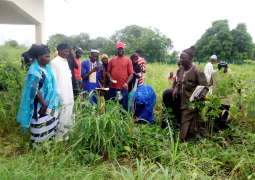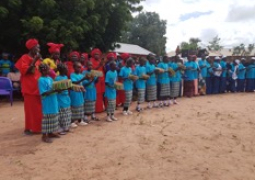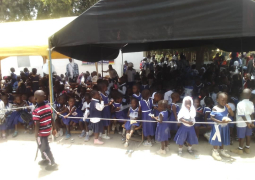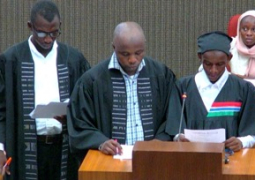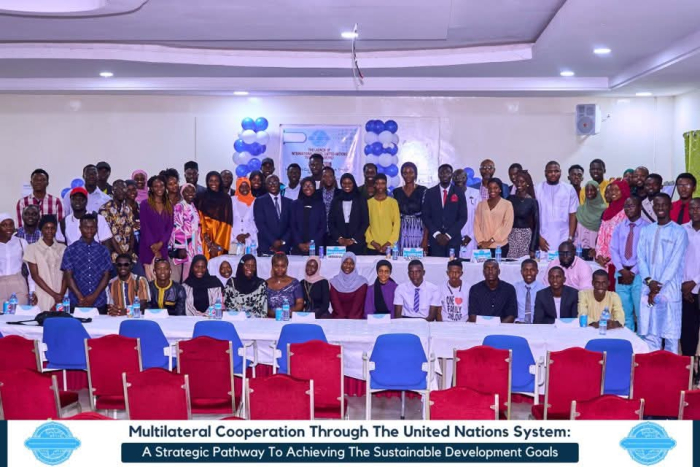
Held at the Baobab Holiday Resort, the launch drew a large and diverse audience from students and lecturers to national and international agency leaders. Themed “Multilateral Cooperation Through the United Nations System: A Strategic Pathway to Achieving the Sustainable Development Goals”, the event underscored the importance of youth engagement in global diplomacy and governance.
Mr Lamin Gibba, lecturer at the Department of Diplomacy and International Relations at the Civil Service University, deputised for his head of department and delivered a compelling analysis of the Gambia’s multilateral diplomatic behaviour through the United Nations system in the post–Cold War era.
“Despite being a small state, The Gambia entered the global stage with dignity and purpose, determined to contribute to peace, justice, and development,” he said.
Gibba highlighted key milestones, including the 2017 launch of the Truth, Reconciliation and Reparations Commission (TRRC) with UN support, and The Gambia’s bold legal case at the International Court of Justice (ICJ) in 2019, accusing Myanmar of genocide against the Rohingya Muslim minority.
He traced the evolution of Gambian diplomacy through the Cold War, the Jammeh era, and the post-Jammeh transitional period, concluding with a powerful message:
“Diplomacy is not just an act; it is an art, and like all art, it must be taught, studied, and practised. IMUNG is timely and essential. It will groom the next generation of Gambian diplomats, build negotiation and oratory skills, instill knowledge of international law and global governance, and ensure that Gambians are no longer spectators, but leaders in multilateral arenas.”
Gibba called on the Government of The Gambia, UN agencies, civil society, and development partners to support IMUNG’s mission.
“The Gambia has experienced democracy, dictatorship, and renewal. We’ve seen the bright, the dark, and the bright again. Today, we stand not just as survivors but as standard-bearers for peace, justice, and human dignity. That is why The Gambia’s voice matters at the United Nations, and that is why this generation must be prepared to carry it forward.”
Lamin Camara, Assistant Country Representative for UNFPA, offered a poetic reflection on multilateralism and youth participation:
“Think of multilateral cooperation and the United Nations system as a global orchestra. Each nation, each UN agency, and critically, each young person like you, represents a unique instrument. When we all play in harmony, following the common score of the SDGs and the principles of human rights, we can create a powerful symphony of progress, peace, and sustainable development that resonates across the entire world.”
He encouraged participants to see their engagement with IMUNG as preparation to play their vital part in this global symphony.
Retired Ambassador Ebrima Ousman Ndure spoke on the importance of diplomatic etiquette, describing it as a vital tool in international relations.
“Diplomatic etiquette involves the customs and courtesies that guide the conduct of diplomacy,” he explained, offering examples of how small states such as Switzerland, Norway, and Qatar have become influential global actors through strategic diplomacy.
“For small states, diplomacy is not only a foreign policy tool but an existential necessity,” he stated.
The official launch was conducted by Madam Halimatou Dibba, Commissioner at the National Human Rights Commission, who delivered inspiring remarks on the importance of youth-led initiatives in shaping the future of diplomacy and human rights advocacy.


